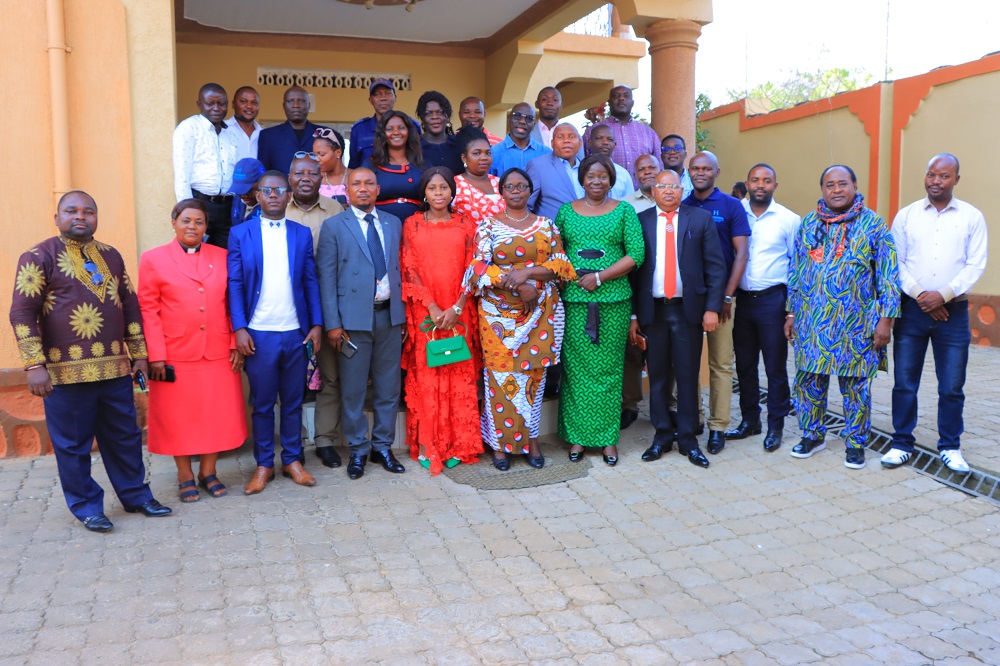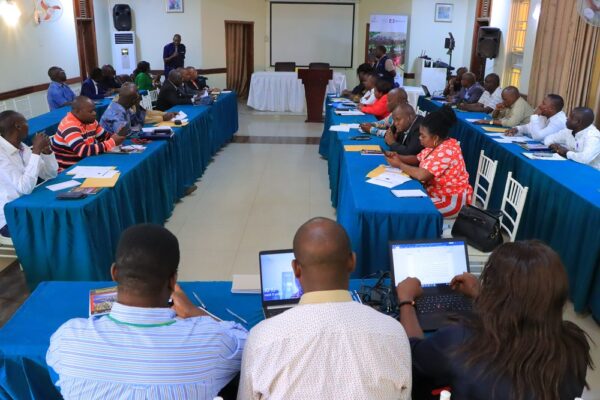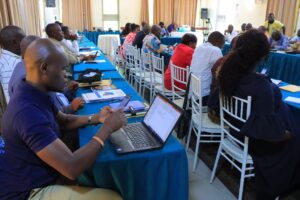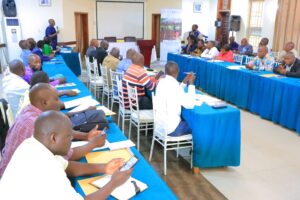DRC: Formation of Consultative Mediation Groups to Strengthen Social Cohesion in Beni and Ituri

The Democratic Republic of Congo (DRC) has taken a proactive approach to support communities in the eastern part of the country that has been affected by armed violence, through the formation of Mediation Advisory Groups (MAGs) in the provinces of Ituri and Greater North Kivu. These groups consist of approximately 50 actors who engage in mediation to prevent or resolve various conflicts, including land disputes, power struggles, administrative boundary conflicts, and those related to natural resources exploitation and armed group activities.
The MAGs are peace facilitators that bring together members of public institutions and civil society, including women's and youth associations. The initiative, funded by the European Union, is led by the Consortium, comprising Interpeace, the Pole Institute, Action for Peace and Concord (APC), and the Centre for International Cooperation of New York University. These platforms are used for dialogue sessions and to implement action plans that promote intra- and inter-community reconciliation.
The MAGs are an important step towards sustainable peace and development in the DRC's eastern region, and a crucial part of their internal structuring and capacity building. Members have been trained in conflict transformation, negotiation, and mediation techniques. The training has been extended to other mediation actors in Ituri, including land administration animators, customary chiefs, female association delegates, and representatives of youth structures.
During the establishment of the MAG in the Beni territory in January 2023, the representative of the province governor, Gédéon Kasereka, praised its inclusive nature and emphasised its sustainability.
"North Kivu is interested in establishing a legal working group, as it is essential to have a solid legal foundation. The group must also be legitimate, consisting of individuals who hold significant influence in society. Additionally, inclusivity is crucial, with accreditation extended to all members of the community, including women, men and the youth. Finally, sustainability is key, as the group should not be tied to any specific project,” he said.
This project aims to create sustainable peace in the region by bringing different communities together. The involvement of the MAGs is essential to achieving this goal. “The project's activities must continue to ensure lasting peace in the region.” As Christian Vingazi, programme manager at Interpeace, said during the January discussion held in Bunia, "We should not allow Ituri and its people to perish. We have already lost a lot. Let us take action to preserve this region and its people and set an example for others to follow.”
The MAGs are a real approach to helping communities in the DRC's eastern region reconcile and strengthen social cohesion. By working together, they can contribute to the improvement of trust between communities and help build lasting peace in the country.
André Kataloho, the chief of Bahema South Sector, believes that the MAG's involvement is crucial for ensuring the sustainability of project actions. "We would like these activities to be continuous in order to sustain peace actions within our entities. Whether in the Walendu Bindi chieftaincy or the Bahema South sector. The involvement of the MAG is necessary so that the two conflicting parties come together to walk in the same direction."



